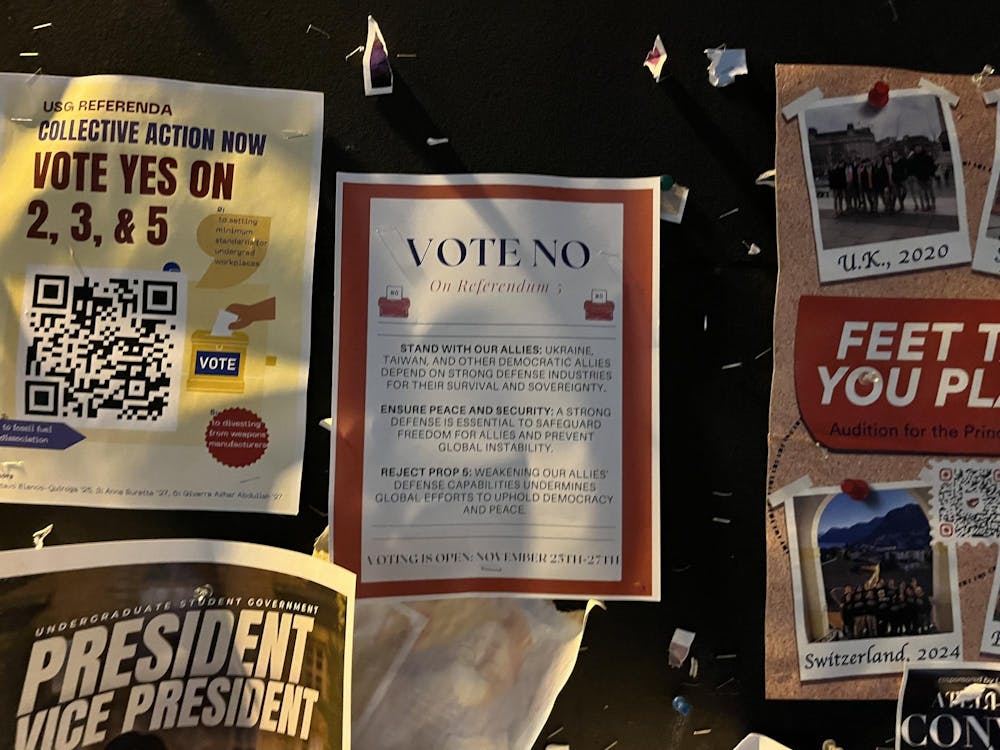I get mail just about every day this time of year. Not from friends or family, but from newspapers. I've had weeks where I've averaged two rejection letters a day. It's summer job-hunt season, and that means your ego had better be prepared for a beating.
To be fair, I brought this on myself. I applied for more than 40 newspapers' summer internship programs. That means that I'm going to get my share of rejections. I didn't realize it would also get me my share of laughs.
Three newspapers rejected me before I sent them an application. One paper rejected me twice. One paper rejected me, unrejected me, and rejected me again. I got one rejection letter addressed to some guy named Neil who, according to one paper's data banks, shares my address.
So now I have a nice set of 30 rejection letters. (One paper actually accepted me and a handful of others haven't gotten around to rejecting me yet.) I think that constitutes a scientific sample. I have sorted the letters into three categories into which all – yes, all – the rejection letters fit. 1. The postcard. They're not making any bones about the fact that they couldn't care less about you. They are in effect saying that you are so worthless that they wouldn't even spend 32 cents on you. But at least they are honest and direct.
A taste: "Dear Internship Applicant: We regret to inform you that you were not among the interns chosen for this summer. The Editors." 2. The form letter. This one comes in an envelope, giving you a precious 15 seconds to speculate about all the different things it could say inside. But you already know it's not good news – the old thin-envelope, thick-envelope test still applies in college – and once you've received one or two, you also know how they're going to tell you to scram. There is apparently only one person in the United States who writes rejection letters for newspapers every year. (How'd he get that job?)
The text: (On photocopied letterhead.) "Dear Richard (first clue they don't know who I am – nobody calls me Richard, not even my mother): Thank you for your interest in the summer internship program at (fill in the blank). We received (x) applications for (x divided by 100) slots. Unfortunately, we are unable to offer you a position. If you are eligible to apply next year, we encourage you to do so. Otherwise, best of luck in the future. Sincerely, (stamped signature)." 3. The form letter, with a personal touch. This is for the recruiting directors who feel bad about form letters. They therefore send form letters with their actual ink (or their secretaries' ink) on the page, and occasionally add a word of encouragement, like "Sorry!" or "Maybe next year!" Some are apologetic in the text of the letter. Something like, "we would have liked to have hired you, but this year's outstanding crop of applicants meant we had to turn away some highly qualified people. Best of luck in the future." Touching, until you realize that everyone got the same letter, even that guy who applied with clips from his high-school newspaper and six typos in his cover letter.
Maybe I was applying for the wrong job. Maybe what these papers really need is someone to handle the bushels of mail that require them to send badly produced form letters to all who deign apply. In any case, it's a shame I can't apply again next year. I've already worked on a draft of my cover letter:
"Dear Newspaper Editor: I have applied to your newspaper because you are a newspaper, not because I have any particular interest in working for you. I sent out 39 letters identical to this one to other newspapers. I challenge you to spend less time looking at my application than I took preparing it. Sincerely, Internship Applicant."








